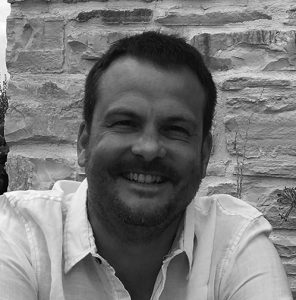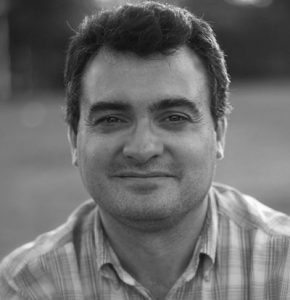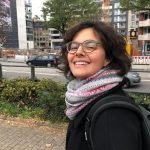
Michaela
Trippl
University of Vienna
Michaela Trippl is Full Professor of Economic Geography, Head of the Department of Geography and Regional Research, and Coordinator of the Branch Anthroposphere of the Doctoral School VISESS (Vienna International School of Earth and Space Sciences) at the University of Vienna (Austria). She is also Professor II at the School of Business and Law at the University of Agder (Norway). Michaela obtained her PhD from the Vienna University of Economics and Business in 2004. Before joining the University of Vienna in 2016, she has worked as an Associate Professor at the University of Lund at the Centre for Innovation Research (CIRCLE) in Sweden. The main focus of her theoretical and empirical research is on the geography of innovation and sustainability transitions, new regional path development and novel forms of regional and innovation policy. She has widely published in leading international journals such as Progress in Human Geography, Economic Geography, Regional Studies, Environment and Planning A, Geoforum and Research Policy and has also co-authored several books and co-edited several special issues of journals in the fields of regional development, economic geography and innovation studies.

Ulrich
Ermann
University of Graz
Ulrich Ermann is Professor in Human Geography and Geographical Education at the University of Graz, Austria, since 2012. He holds a PhD of the University of Erlangen-Nuremberg, Germany, and was researcher at the Leibniz Institute for Regional Geography in Leipzig, Germany, and interim Professor at the Catholic University of Eichstaett-Ingolstadt , Germany, and guest professor at the University of Sofia, Bulgaria. He teaches human geography, economic geography, geographies of food and consumption, regional development and geographies of globalization. With a particular focus on commodities, brands and consumption he analyzes how global circulation and ‘market places’ with their naturalness and moralities are performed between worlds of production and consumption. Based on approaches of ‘more-than-human geographies’ and the performativity of economic life, he currently works in the fields of agro-food studies, consumption and sharing economies and leads research projects on “Sharing Spaces” (“Raumteilen”) and “Rurban Foodscapes” (“Rurbane Nahrungswelten”), Dimensions of Europeanisation and regional/rural development. Was Head of the Department of Geography and Regional Science and is member of the Senate of the University of Graz. He is member of the German Academy of Regional Geography and chair of the Austrian Association of Academic Geographers.

Michael
Janoschka
University of Leipzig
Since the winter 2019/20, Michael Janoschka has been teaching and researching at the Institute of Geography, University of Leipzig (Germany). This appointment follows his previous career steps at the University of Leeds (UK, 2016-19), Universidad Autónoma de Madrid (Spain, 2011-16), the Spanish National Research Council (CSIC, 2008-10) and the University of Frankfurt (Germany, 2005-08). He is an Urban Geographer with a research focus on processes of gentrification, displacement and financialization; collective action and planning conflicts; and alternative, bottom-up urban governance approaches. His regional expertise comprises Latin American and Southern European cities, as well the city of Leipzig and its regional setting in Saxonia (Sachsen).

Thilo
Lang
Leibniz Institute for Regional Geography (IfL)
Thilo Lang graduated in Spatial Planning and holds a doctorate in Human Geography. Thilo is Head of Department at the Leibniz Institute for Regional Geography (IfL), Leipzig/ Germany, and lecturer at the Global and European Studies Institute at the University of Leipzig. He is a member of the Collaborative Research Centre 1199 “Processes of Spatialisation under the Global Condition” and directs the research group “Multiple Geographies of Regional and Local Development” at IfL. His research interests include polarisation processes at multiple scales, innovation outside of agglomerations, local and regional development with a focus on institutional change in ‘peripheral’ regions and alternative economies. Previously he held positions at the Leibniz Institute for Research on Society and Space and the Regional Development Agency ZukunftsAgentur Brandenburg GmbH as well as fellowships at the University of Sheffield, Durham University (UK) and a guest professorship for globalisation and development at the Latvian University in Riga.

Martin
Hollinetz
Otelo eGen
Martin Hollinetz, founder and chairman of the Otelo network and cooperative, is a social pedagogue, regional manager and IT developer. Since 2013, Hollinetz has been an Ashoka Fellow (international network for social enterprises) and was elected Austrian of the Year in 2013 for his commitment to activating civil society.

Ignasi
Capdevila
Paris School of Business
Ignasi Capdevila is a professor (PhD; HDR) and researcher at the Chair NewPIC at Paris School of Business, associate researcher at Mosaic (HEC Montréal) and BETA (University of Strasbourg). His research interests include localized knowledge creation and transfer, knowledge communities, creativity and innovation management in organizations and cities. Ignasi is currently working on the innovation dynamics in collaborative spaces (like coworking spaces, Fab Labs, makerspaces, hackerspaces, etc.) and on the knowledge and innovation processes taking place in cities. His research has been published in the Journal of Economic Geography; Industry and Innovation; City, Culture and Society; Journal of Business Strategy; among others.

Christian
Rost
Regional Association Cultural and Creative Industry Saxony (SACCI)
Christian Rost studied geography with a focus on economic, urban and regional development in Leipzig and Urban Studies at the Bauhaus University Weimar.
Early 2014 he founded the Office for Urban Transitional Spaces and has since worked with his interdisciplinary team, and national and international partners in various projects. Christian Rost is an expert on local governance processes and investment management in the field of urban and regional development. He also likes to rely on unconventional methods. His area of special interest is the economic development of sole traders and small enterprises.
Prior to founding the Office for Urban Transitional Spaces, he was the head of the Germany’s Competence Centre for Cultural and Creative Industries.
Since April 2017, he has been the head of the Saxon Center for Cultural and Creative Industries.

Suntje
Schmidt
Leibniz Institute for Research on Society and Space (IRS)
Prof. Dr. Suntje Schmidt is interested in temporal and spatial dynamics of creativity and innovation
processes. She also conducts research on the spatial dimensions of work and entrepreneurship and
seeks to investigate the social construction of resilience strategies of workers in volatile labor
markets. Against the research background she adresses e.g. the role of metropolitan regions and
agglomeration in knowledge-based networks of business services and entrepreneurs with a
particular focus on creative industries. Particular attention is given to urban and social ressources for
employment related resilience strategies in cities and regions. Her research on Open Creative Labs
contibutes to better understanding the function of social and material environments in creative and
digital work contexts especially for communities of micro-entrepreneurs. More recently she
investigates the role of platforms in creative processes.
Suntje Schmidt is the acting head of the research department “Dynamics of Economic Spaces” and S-
Juniorprofessor for “Applied Economic Geography” at the Humboldt-Universität zu Berlin.

Carolina
Pacchi
POLITECNICO DI MILANO
Carolina Pacchi, PhD in Urban and Environmental and Planning, is Associate Professor at Politecnico di Milano, where she teaches Planning Theory and Practice and Local Conflict Resolution and is part of the Polimi2040 Roundtable on future strategies for technical education. She has done research on the transformation of urban governance in European cities, on forms of alternative politics and grassroots activism at local level and she is engaged in research on the transformation of workspaces and their impacts on territories in Italy and in Europe. She has been involved in a number of EU funded research projects on governance in urban, environmental and local development policies.

Ilaria
Mariotti
POLITECNICO DI MILANO
Ilaria Mariotti is Associate Professor of Urban and Regional Economics at the Department of Architecture and Urban Studies (DAStU) – Politecnico di Milano (IT). She achieved a M.Sc. degree in Regional Studies at the University of Reading (UK), a Ph.D in Economic Geography at the University of Groningen (NL) and a Ph.D in Transport Economics at the Università degli Studi di Genova (IT). She teaches regional economics and environmental economics in undergraduate and graduate courses. She is member of the Urban Planning and Policy Design Ph.D programme at Politecnico di Milano. Her main research interests concern: firm location, industrial districts and clusters; new working spaces and their effects on the urban context (i.e. enhancing innovation, urban regeneration, etc.). She is Chair of the Cost Action 18214 “The Geography of New Working Spaces and the Impact on the Periphery” (2019-2023). She is member of the DAStU- research team (main proposer) for ESPON MISTA (Metropolitan Industrial Spatial Strategies & Economic Sprawl) (2019-2020) and ESPON IMAGINE (Developing a metropolitan-regional imaginary in Milan-Bologna region) (2020-2021).

Vasilis
Avdikos
Consortium Coordinator and Supervisor, Panteion University
Dr. Vasilis Avdikos (PhD, MA, MSc, BA) is Assistant Professor of Creative Economy and Regional Development in the Department of Economic and Regional Development at Panteion University in Athens. He completed his doctoral studies in the University of Sheffield. Vasilis is researching Creative and Cultural Industries and their role in processes of urban and regional development. During the past few years he is researching the evolution of collaborative workspaces in small and large cities, their effects on labour and their potential for fostering local socio-economic development. He has a large number of publications and policy reports and he has successfully managed several research and evaluation projects.

Antonis
Rovolis
Panteion University
Antonis Rovolis, (economist, BA Athens, MA Sussex, PhD LSE) is Professor of Spatial and Urban Economics, and Director of Postgraduate & Doctoral Studies, at the Department of Economic and Regional Development, Panteion University of Athens. Director of the Research Institute of Urban Environment and Human Resources, Panteion University of Athens.
He has worked as a research fellow at the Queen Mary College, University of London, at the Institute of Regional Development, and the Institute of Urban Environment and Human Resources, Panteion University of Athens, and he has taught at Thessaly University, and Harokopio University of Athens. He has been a visiting research fellow at Toronto University, McGill University, York University (Canada) and Concordia University. Expertise: real estate economics, urban and regional infrastructure investment, urban and regional economic growth, spatial dimensions of new technologies, new economic geography.

Martha
Michailidou
Panteion University
Dr Martha Michailidou is assistant professor (tenured) in Methods of Communication Research at the Department of Communications, Media and Culture, Panteion University in Athens. She has participated in 11 national or international research projects, which have been funded or part funded (with Greek national contributions) by the EU. She has taught at the Departments of Media and Communications, Goldsmiths College, University of London and the Department of Sociology, University of Crete, and has collaborated as a researcher with the Greek National Centre for Social Research (EKKE). Her research interests include: labour in the creative/cultural industries, gender in the creative/cultural industries, multimethodological approaches to media and cultural research, and feminist, emergent, and digital methods.

Vassilis
Charalampidis
European Creative Hubs Network (ECHN)
Vassilis Charalampidis, is a founding member and the artistic director of BIOS, a cultural organization for today’s art, urban life and the creative industries based in Athens. Bios has also initiated Romantso, the first creative hub of Athens and the first structure to support specifically cultural and creative businesses and professionals in Greece.
Vassilis Charalampidis has an extended curating experience on audiovisual events and performances on urban culture, cross media and various expressions of contemporary artistic creativity. Additionally, as a graphic designer, he has received numerous Greek and European awards and distinctions. In 2003, he joined the Olympic Games opening ceremony’s creative team and he created the visual materials of the opening act. He is also a founding member and president of the board, of the first European Creative Hubs Network, along with partners from all over Europe and over 300 members in 36 different countries.
Vassilis Charalampidis is also a keynote speaker at conferences and events that take place around Europe concerning culture, creativity and the life in the city. He is an evaluator of proposals on European Projects in the field of cultural and creative industries for the European Commission and he has participated in the consultation on the shaping of the new European agenda for culture.

Vasilis
Avdikos
Consortium Coordinator and Supervisor, Panteion University
Dr. Vasilis Avdikos (PhD, MA, MSc, BA) is Assistant Professor of Creative Economy and Regional Development in the Department of Economic and Regional Development at Panteion University in Athens. He completed his doctoral studies in the University of Sheffield. Vasilis is researching Creative and Cultural Industries and their role in processes of urban and regional development. During the past few years he is researching the evolution of collaborative workspaces in small and large cities, their effects on labour and their potential for fostering local socio-economic development. He has a large number of publications and policy reports and he has successfully managed several research and evaluation projects.

Eirini Iliopoulou
Senior Project Manager, Panteion University
Dr. Eirini Iliopoulou is an Architect - Urbanist and holds a PhD in Urban Studies awarded by the Technical University of Berlin (Germany) and fully funded by DAAD research grants and the Rosa Luxemburg Foundation. She is currently a postdoctoral researcher at Panteion University (Athens, Greece) and a freelance urban planning consultant. Both her research and professional interests focus on Civic Participation in Integrated Territorial Development Strategies, Community Engagement and Participation Practices, Socio-spatial Conflicts, Cultural Development and Urban Innovation.

Antigoni Papageorgiou
Content and Events Manager, Panteion University
Dr Antigoni Papageorgiou studied political sciences (University of Athens) and cultural management (Panteion University), and she has received her doctorate in cultural industries from the University of Leeds. Specialized in qualitative research methodologies and innovative design thinking practices, she has worked as a social researcher on strategic projects in the areas of creative industries, hubs, and start-up entrepreneurship, communication development and youth trends, in academia and beyond. Her main research interests lie at the intersection of gender, entrepreneurship, and labour and she currently explores these topics in the context of flexible collaborative spaces.

Pavel
Bednář
Pavel Bednář is a Head of the Department of Regional Development, Public Administration and Law at Tomas Bata University in Zlín. Pavel received PhD in human geography and regional development at Charles University in Prague. Pavel’s research activities currently cover creative industries and collaborative spaces locations strategies and their impact on urban space, knowledge transfer in collaborative spaces, cluster organizations policies and collaboration with R&D institutions, and spatial econometry. He participated in projects at both local and national levels, including international cooperation. Pavel is a member of the Czech Geographical Society and Vice-Chair of the National Creative Cluster Supervisory Board in the Czech Republic. He is Vice-Chair of the Cost Action 18214, “The Geography of New Working Spaces and the Impact on the Periphery” (2019-2023).

Janet
Merkel
Dr Janet Merkel is an urban sociologist and post-doc researcher working at the Chair of Urban and Regional Economics at the Institute of Urban and Regional Planning at Technical University Berlin. From 2015-2018 she has held a lectureship position (assistant professor) for CCIs at City, University of London. She also held research positions at the Berlin Social Science Center (WZB) in the research unit ‘Cultural Sources of Newness’ and at the Centre for Cultural Policy at Hertie School of Governance. Her research interests include new forms of work organization (coworking), CCIs, creative labour, urban politics and governance for culture and creative industries and cultural planning.

ESR1
Taxonomy and location patterns of CWS in the periphery. An international comparison

ESR2
Exploring the contribution of CWS in processes of social innovation in rural and peripheral areas; a comparative study between Greece and Germany


ESR4
(Re-)Inventing the Rurban: Progressive and alternative spaces of work in peripheral communities in Central and Eastern Europe


Publications:

ESR7
Measuring the effects of CWS on the coworkers’ performance and wellbeing in core vs. periphery. A counterfactual analysis

ESR8
CWS as antidote to labour precariousness in rural places; a comparative study between Austria and Greece

ESR9
CWS and their place in local entrepreneurial ecosystems; a comparison between Germany and Austria

ESR10
Creative hubs as drivers of change in peripheral business ecosystems; a comparison between Germany and Austria

ESR11
New workspaces in peripheral communities- factors of success and policy implications

ESR12
Core-periphery relationships through coworking. Reducing the gap between urban and rural areas

ESR13
Developing impact assessment methodologies for CWS in rural and peripheral areas

ESR14
Exploring the sustainable development potential of CWS in local development strategies of peripheral and rural towns; a comparative approach between Greece and Germany

ESR15
CWS as a new panacea in rural regional development? Reflections from Germany, Italy and France
